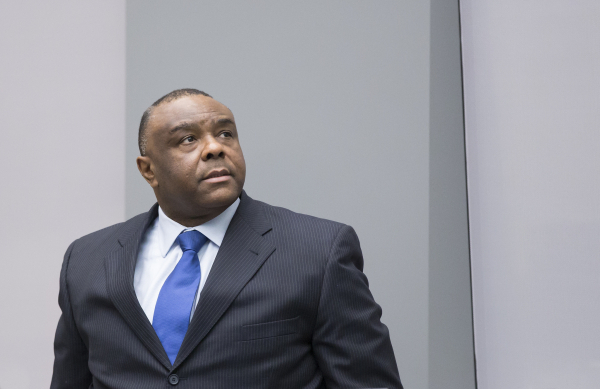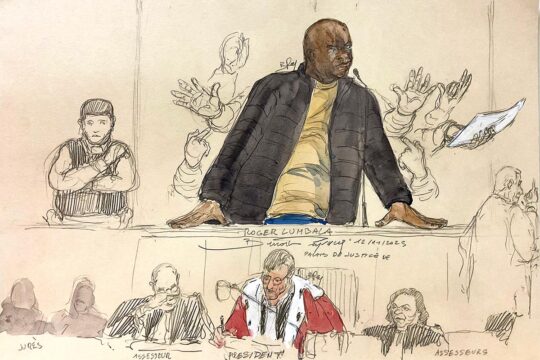As the International Criminal Court (ICC) prepared to hold a hearing this July 5 in a second, witness tampering case against Congolese Senator Jean-Pierre Bemba and his co-accused, the Prosecutor says his acquittal in early June for crimes in the Central African Republic (CAR) was based partly on false testimonies.
48 hours before the witness tampering sentencing debates, the Prosecutor of the International Criminal Court filed a new deposition. Fatou Bensouda considers that witness tampering by the former Congolese vice-president had an impact on the acquittal decision of June 8. Whilst Bemba was acquitted of crimes against humanity and war crimes charges for rape, murder and looting committed by his forces in the CAR in 2002 and 2003, he remains guilty of tampering with 14 witnesses in the course of the trial. That guilty verdict against him and four others was confirmed on appeal in early March, but he has not yet been given a final sentence. In her latest document, the Prosecutor says that false testimonies influenced three of the five appeals court judges who pronounced Bemba’s acquittal.
“Toxic effect”
“To obtain Mr. Bemba’s acquittal, the convicted persons intentionally and irreversibly poisoned the evidentiary record of the Main Case with the testimony of false, scripted and tainted witnesses,” says Bensouda. “Once the record of a case is polluted with corrupt evidence and false testimony, there is no way of controlling the reach of their toxic effect. Here, that effect reached the appellate stage and affected at least a significant part of the Majority’s assessment and conclusions.”
In short, she says, “the convicted persons’ concerted and unlawful efforts may have ultimately succeeded, not at trial as originally intended, but at the appellate stage”. A few days after the appeals decision, the Prosecutor criticized it strongly in a press release, refusing to admit the weakness of her initial case file, and was called to order by the Court president. Bemba had been charged with command responsibility, not for ordering the crimes committed by his troops, but for failing to prevent or punish them. The trial court rejected Bemba’s attempts to show that he did punish his soldiers.
Bemba’s political future
The trial chamber deemed at the time that Bemba was acting in bad faith, to satisfy the international community. But the appeals chamber considered that the Prosecutor had failed to prove bad faith. Bensouda, however, says the appeals judges “tacitly” accepted the narrative advanced by “scripted and tainted Defence witnesses”. She therefore calls for the maximum 5-year jail sentence and a “substantial fine” for Bemba, his lawyer at the time Aimé Kilolo and defence associate Jean-Jacques Mangenda. The sentences against the two other accused, Congolese parliamentarian Fidèle Babala and witness Narcisse Arido were already confirmed in March.
If the judges impose a fine, it will be paid to the ICC Trust Fund for Victims, which has promised to set up an assistance programme for victims of the 2002-2003 war who will not now obtain reparations. In a memorandum filed before the acquittal, Bemba’s lawyers called for a sentence not exceeding one year in jail and a 300,000 Euro fine. As for Kilolo, he called for confirmation of the 11-month sentence, which he has already served in preventive detention, and 30,000 Euro fine. Jean-Pierre Bemba has already spent more than 10 years in the prison in Scheveningen. But the judges consider that he has spent some four years in preventive detention for the witness tampering (since he was charged). On June 16 he was freed and allowed to join his family in Brussels, after the judges ordered his interim release. Since his acquittal, there has been much speculation about his political future in Kinshasa, which he left after being beaten by Joseph Kabila in the November 2006 presidential elections. His supporters hope he will return for the Congress of his MLC party scheduled for mid-July.






